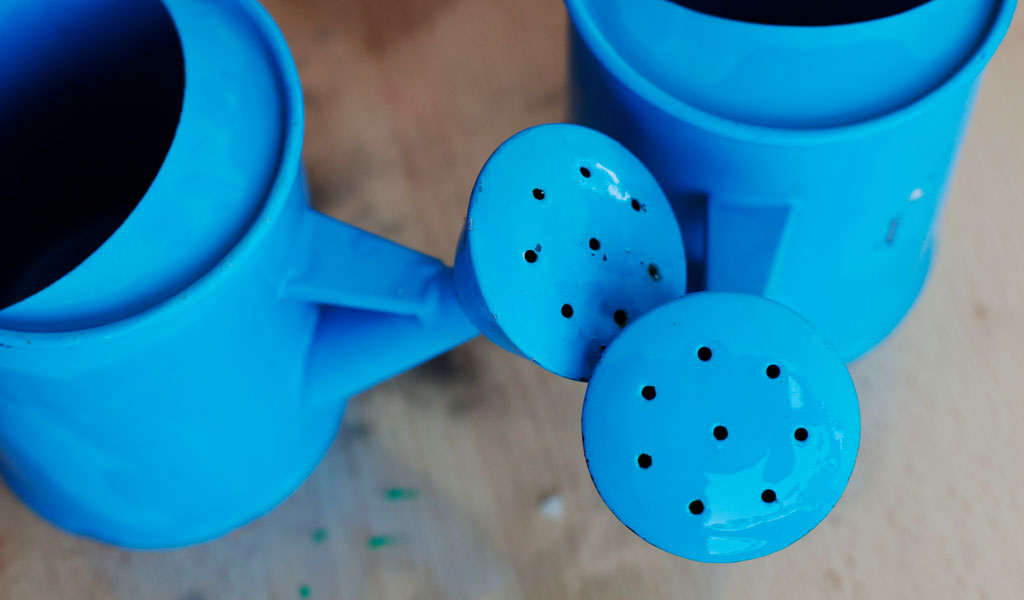At Home Grown Children’s Eco Nursery we don’t just want to promote a greener environment
for your children while they are with us during the day. Home life, work life and the way we shop
can all have a huge impact on the environment. Here, we’ve included some helpful tips
as a straightforward guide to maintaining a more eco-friendly lifestyle. Please take
a few minutes to read them, and see why the Home Grown ethos is something that supports
every element of the way we live, and goes beyond the walls of our nursery.
Going green
at home
Limit showers to 4 minutes and you can
save over 25,000 litres of water a year.
Try not to leave the refrigerator door
open for too long. Up to 30%
of cooled air can escape every
time you open the door.
When you boil eggs or steam greens,
keep the water! It’s rich in nutrients like
calcium, so allow it to cool and use
it to water your plants.
Unplug electrical appliances when
they’re not in use. 10 to 15% of their
energy is still used when powered ‘off’.
Cook using a microwave. It’s faster
and more efficient than using an oven,
and reduces up to 70 percent of energy use.
Use non-plastic Tupperware to store
leftover food in the refrigerator.
Use Potpourri instead of air-freshener.
Made from lavender, roses and other
fresh flowers it is a healthier alternative
to releasing toxic chemicals into
the environment.
The UAE has perennial sunshine and it’s
easier than ever to get hold of solar
panels. Consider using solar energy
to recharge your mobile phone
and other electrical appliances.
As the world’s second largest consumer
of drinking bottled water, the UAE
is a huge contributor to the plastic
waste that comes with it. Install
water filters on faucets for
an eco-friendly alternative.
Use beeswax candles to light up your
home at night. They burn cleaner and
longer compared to other candles
and are petroleum-free.
Going green
at work
Keep plants in the office. The constant
circulation of oxygen and carbon
dioxide is just what we need
in a concrete jungle like Dubai.
Shut down your computer instead
of keeping it on ‘standby’. That way you’ll
avoid releasing an excess of 1,500
pounds of CO a year.
Organise a company ‘freecycle’ group.
Encourage everyone to offer unwanted
items for free to others who can make use of them.
Make it office policy to have reports
produced electronically to save paper.
Additionally, rely on internet banking
for paying bills.
Discourage disposable cutlery, plates
and cups. Instead stock glassware,
silverware and coffee cups in the
office pantry.
Install hand dryers in restrooms.
It not only saves on using paper towels but
is also more sanitary.
Change the office printer settings to
‘economy mode’ and avoid using colour
if possible. Economy mode uses up to
50 percent less toner and prints
twice as many pages as other
higher quality settings.
A computer monitor left switched
on during the night wastes enough energy
to laser print 800 pages. Switch off or
unplug all electrical appliances before
you leave the office.
Be a friend to the environment
by reusing paperclips, folders, binders
and other office supplies. Keep a tray
for scrap paper that can be used
for making notes.
Avoid using Polystyrene foam
(or Styrofoam). It takes several decades
to hundreds of years to deteriorate
in a landfill.
Going green
when you shop
ATM receipts account for one of the top
sources of litter on the planet. Choose
not to take one if you dont need it.
Buy rechargeable batteries. A single
rechargeable battery can replace up to
one thousand single-use alkaline
ones over its lifetime.
Consider the environment when
shopping or gifts. Hand-made gifts,
reusable travel mugs, organic cosmetics
and products, solar battery chargers
with rechargeable batteries and hemp
clothing and are all good options.
4 billion trees are cut around the world
for use in paper industries. You can help
by lending and borrowing books,
instead of buying new ones.
Buy products in bulk to reduce
excess packaging waste.
Refuse plastic carrier bags at the
counter when shopping or
at least reuse them.
Use a coffee filter made from cloth
or metal instead of paper-based
substitutes.
Buy reusable flasks for drinks and
airtight containers for snacks instead
of purchasing disposable alternatives.
Single-use diapers are not recyclable!
You and your baby will be responsible
for consuming 4.5 trees and adding
two tonnes of solid waste into our
environment. Choose cloth
diapers instead.
Replace incandescent and fluorescent
light bulbs with LED light bulbs that
are extremely energy efficient and
free of mercury.



